Executive Summary: The Psychology of Philoctetes
The Core Conflict: Sophocles’ late masterpiece explores the relationship between Trauma (The Wound) and Power (The Bow). It asks: Can a society use a person’s gifts while rejecting their pain?
Jungian Key Concepts:
- The Wounded Healer: Philoctetes is the archetype of the individual whose creative power (The Bow) is inseparable from their pathology (The Wound).
- The Liminal Island: Lemnos represents the Unconscious—a place of isolation where the ego festers but also incubates transformation.
- The Negative Senex (Odysseus): Represents the “Psychopathic” aspect of the collective—rational, pragmatic, and soulless.
Clinical Relevance: A definitive study in Chronic Pain, Isolation, and the restoration of trust. It shows that healing requires the reintegration of the outcast part of the psyche.
What Happens in The Philoctetes? A Jungian Analysis of the Sacred Wound and the Bow

Sophocles’ Philoctetes (409 BC) is a play about a man who screams. It is one of the few Greek tragedies with no women, no palace, and no gods until the very end. It takes place on a desolate rock where a man has been rotting for ten years.
From the perspective of Carl Jung and the literary critic Edmund Wilson (author of The Wound and the Bow), this play is the central myth of the artist and the healer. It proposes a terrifying equation: The thing that makes you powerful is the thing that makes you sick. Philoctetes possesses the Bow of Heracles (Invincibility), but he also possesses a festering foot wound that smells so bad no one can stand to be near him. The play is the struggle to integrate these two opposites.
Part I: The Exile of the Soul (Plot Summary)
The backstory is the trauma of abandonment. Ten years ago, on the way to Troy, Philoctetes accidentally trespassed on a shrine. A snake bit his foot. The wound would not heal. It oozed pus and Philoctetes screamed constantly, disturbing the army’s prayers. Odysseus, the pragmatic general, ordered him dumped on the uninhabited island of Lemnos.
- The Necessity: Ten years later, a prophecy reveals that Troy cannot be taken without the Bow of Philoctetes. The army needs the man they threw away.
- The Trap: Odysseus returns to Lemnos with Neoptolemus (the young son of Achilles). Odysseus knows Philoctetes will shoot him on sight. He convinces Neoptolemus to trick the old man—to pretend he also hates the Greeks, win Philoctetes’ trust, and steal the bow while he sleeps.
- The Relationship: Philoctetes is pathetic and terrifying. He is desperate for human contact. He bonds with Neoptolemus, seeing him as a “Good Son.” This is the re-awakening of the Feeling Function.
- The Betrayal and Reversal: Neoptolemus steals the bow but is overcome by Moral Injury. He cannot go through with the lie. He returns the bow to Philoctetes, choosing his own soul over the success of the army.
- The Deadlock: Philoctetes refuses to go to Troy. He would rather rot on his rock than help the men who abandoned him. The trauma has calcified into bitterness.
- The Transcendent Function: Heracles (now a god) appears. He commands Philoctetes to go to Troy, promising that his wound will be healed by the physician Machaon. Philoctetes submits to the divine will.
Part II: Archetypal Figures
Philoctetes: The Wounded Healer
Philoctetes is the Shadow of the Greek Army. He represents the pain they refused to carry.
In Jungian terms, he is the archetype of the Wounded Healer (Chiron). He possesses the divine gift (The Bow), but he pays for it with chronic suffering. He lives in a cave (The Unconscious) and exists in a “Liminal” state—neither alive nor dead.
His refusal to return to society is the defense mechanism of the traumatized: Isolation. He protects his wound because it has become his identity.
Odysseus: The Psychopathic Ego
In this play, Odysseus is not a hero; he is a villain. He represents the Negative Senex or the Sociopathic Intellect.
His logic is flawless: “One man must suffer so the many can be saved.” This is the logic of the State, the Corporation, and the Neurosis. The Neurotic Ego suppresses the symptom (Philoctetes) to keep functioning. Odysseus has no soul; he has only objectives. He asks Neoptolemus to “lend me your conscience for a day,” treating morality as a disposable tool.
Neoptolemus: The Individuating Ego
Neoptolemus is the true protagonist. He is the Initiate. He stands between two fathers: his biological father Achilles (Truth/Honor) and his surrogate father Odysseus (Lies/Pragmatism).
His struggle is the struggle of Individuation. To become a man, he must reject the “Collective Persona” (Odysseus’s orders) and listen to his own Self (his compassion). When he returns the bow, he breaks the cycle of abuse.
Part III: Deep Psychological Themes
1. The Wound and the Bow (Compensatory Theory)
Why are the Wound and the Bow linked?
Jung taught that psychological superiority is often a compensation for an inferiority. The artist creates beauty because they are in pain. The therapist heals others because they cannot heal themselves.
The Greeks want the Bow (Power) without the Wound (Pathology). The play insists this is impossible. You cannot have the genius of Philoctetes without the smell of his foot. Society wants the product of the artist but rejects the suffering of the person.
2. The Island: The Incubator of the Soul
Lemnos is an island with no harbor. It is the Unconscious.
Philoctetes has spent ten years in “Incubation.” This mirrors the alchemical stage of Putrefactio (rotting). While the Greeks were fighting (acting out), Philoctetes was suffering (turning inward).
This suggests that deep psychological transformation requires a period of total isolation. The “Sickness” is not just a misfortune; it is a spiritual initiation. Philoctetes comes back from the island harder, deeper, and more dangerous than any of the heroes who stayed in the light.
3. Moral Injury and Trust
The play is a clinical study in Moral Injury. Neoptolemus suffers physical pain (psychosomatic symptoms) when he lies.
Philoctetes suffers from Betrayal Trauma. When Neoptolemus confesses the lie, Philoctetes disintegrates. “You have killed me,” he says.
Restoring trust requires more than an apology; it requires a restitution of power. Neoptolemus must give the Bow back—he must give Philoctetes the power to kill him—to prove he is trustworthy. Trust is only real when vulnerability is mutual.
Part IV: Clinical Relevance
The “Difficult” Patient
Philoctetes is the prototype of the “Borderline” or “Difficult” patient. He screams, he curses, he clings, he rejects. He is impossible to help.
Odysseus wants to “manage” him (force/manipulation). Neoptolemus decides to “relate” to him. The play teaches therapists that you cannot cure the wound by stealing the bow (removing the defense mechanisms by force). You must sit with the patient in the cave and listen to the scream until the patient trusts you enough to walk out.
Chronic Pain as Archetype
The play is also a text on Chronic Pain. Philoctetes’ attacks come in waves. During an attack, he loses language, reduced to animal noises (“Papapapapai!”).
Pain destroys the Ego. It reduces us to the body. The play validates the isolation of the pain patient, showing that their anger is not a symptom of bad character, but a natural response to a world that demands they suffer silently so as not to “disturb the libations.”
Part V: The Divine Intervention (The Transcendent Function)
Why does Heracles appear?
The human conflict is deadlocked. Philoctetes will not go; the Greeks cannot win.
In Jungian psychology, when the opposites (Ego/Shadow) are held in tension long enough, a third thing emerges: the Transcendent Function. Heracles represents the Self—the higher organizing principle. He frames the suffering in a cosmic context: “This pain was sent so you could become a hero.”
Meaning makes suffering bearable. Once Philoctetes sees his wound as part of a divine destiny (taking Troy), he can leave the island.
Explore the Archetypes of the Trojan War
Taproot Therapy Collective Podcast
The Wounded Heroes
Ajax: The Shame of the Warrior
Oedipus at Colonus: The Blind Seer
The Oresteia: The Wound of the House
Deception & The Shadow
Medea: The Betrayal of the Soul
Prometheus Bound: The Suffering for Mankind
The Feminine & The Sacrifice
Iphigenia in Aulis: The First Sacrifice
Iphigenia in Tauris: The Priestess of the Wound
Elektra: The Grief That Does Not Die
The Women of Trachis: The Poisoned Robe
The Suppliants: The Right of Asylum
Greek Tragedies Influence on Jung
The Psychology of the Peloponesian War
Bibliography
- Sophocles. Philoctetes. (David Grene, Trans.). University of Chicago Press.
- Wilson, E. (1941). The Wound and the Bow: Seven Studies in Literature. Houghton Mifflin.
- Jung, C. G. (1954). The Practice of Psychotherapy. Princeton University Press.
- Shay, J. (1994). Achilles in Vietnam: Combat Trauma and the Undoing of Character. Scribner.
- Guggenbühl-Craig, A. (1971). Power in the Helping Professions. Spring Publications.







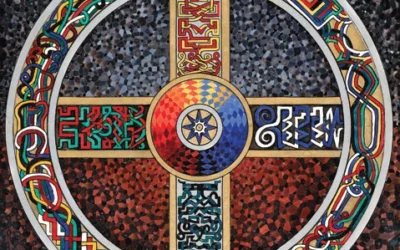
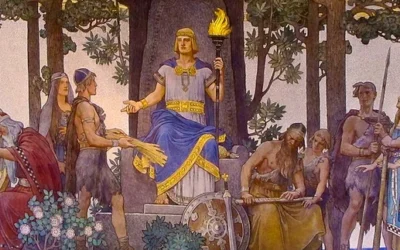


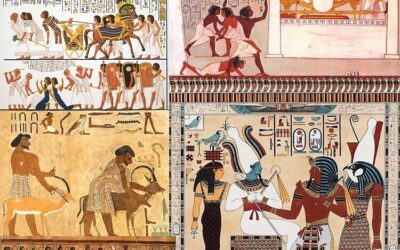
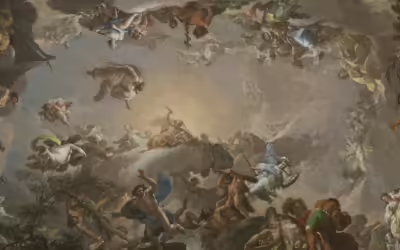



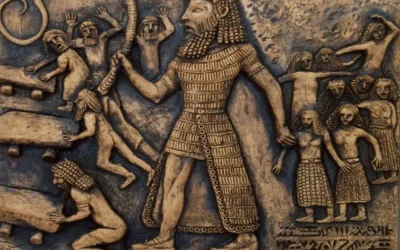



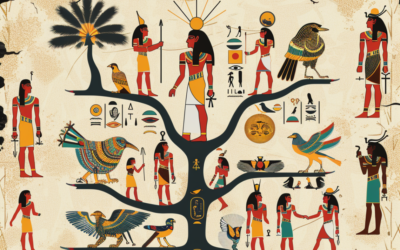
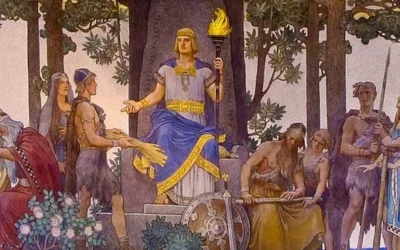

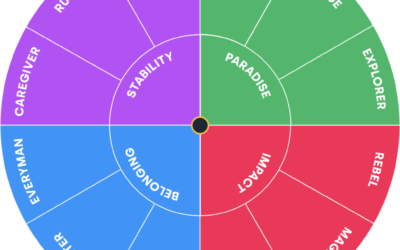

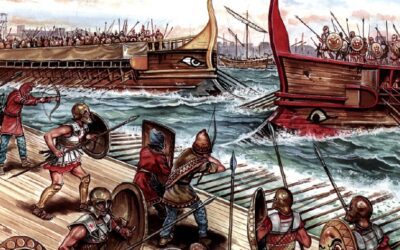
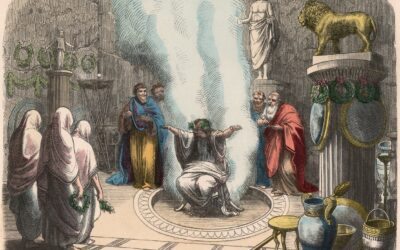
0 Comments